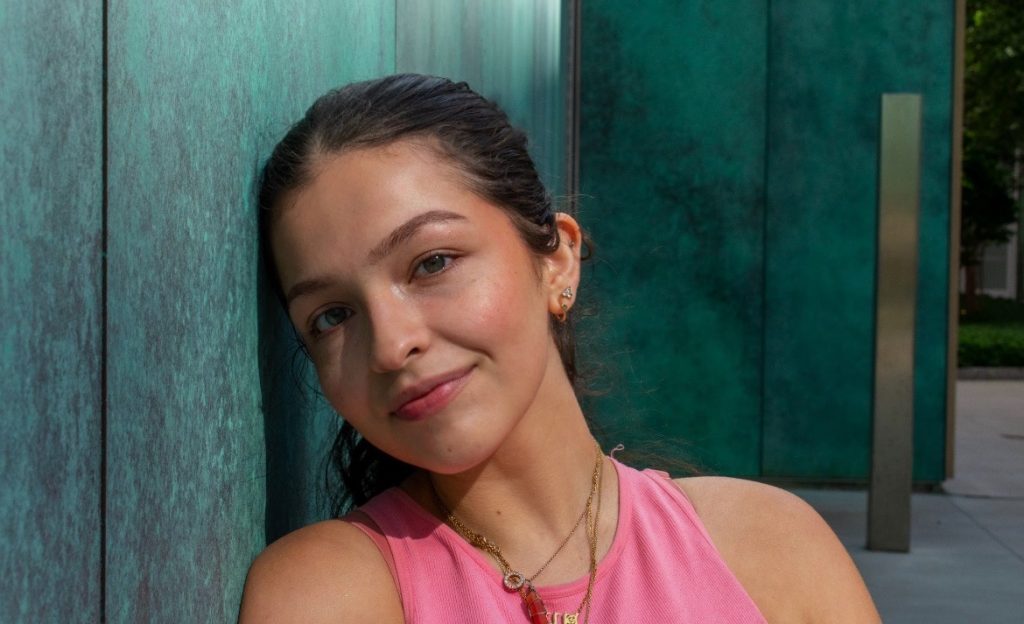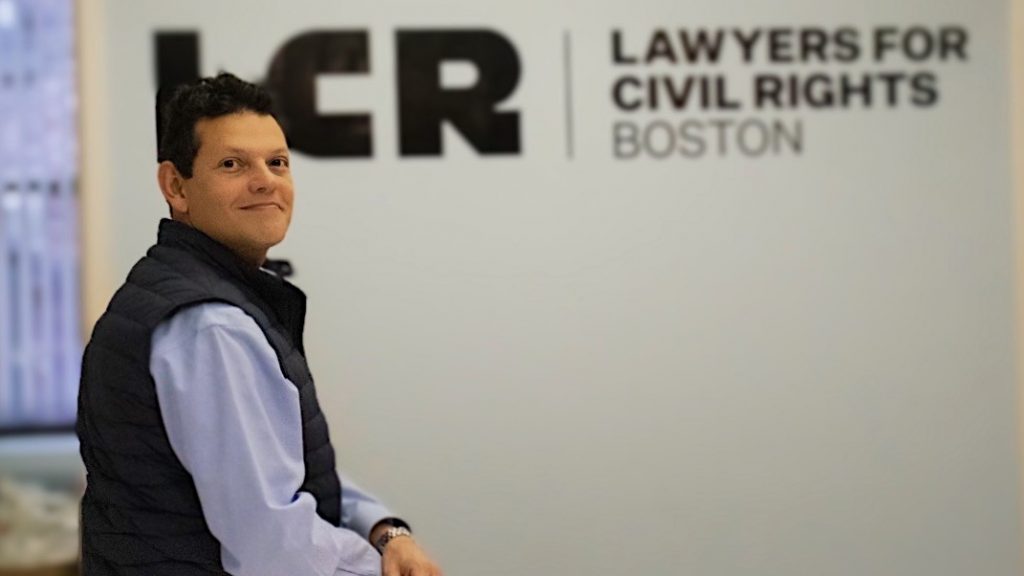MA Latino News covers the social determinants of health and democracy. Collaborations like the partnership with Boston University’s Department of Journalism in the College of Communication is integral to the health of news and the health of democracy.
Some people grow up with aspirations of becoming a celebrity, an athlete, or even a world-renowned singer. For 43-year-old Ivan Espinoza-Madrigal, choosing a career had nothing to do with dreams and everything to do with a question.
“How do you protect yourself and how do you assert your rights, especially in a context where you don’t know your rights?” Espinoza-Madrigal said.
The answer lies in Espinoza-Madrigal’s career as a public interest and civil rights lawyer. As the executive director of Lawyers for Civil Rights in Boston, he has been at the center of many of the legal cases that have come through Boston, including filing a lawsuit against Florida Gov. Ron DeSantis for transporting a myriad of people, most of them Venezuelan seeking asylum, to Martha’s Vineyard.
He’s also been at the forefront of his East Boston neighborhood efforts to locate a Latin-American woman who has been missing since last November.
Espinoza-Madrigal was recently named a 2022 “Lawyers of the Year” by Massachusetts Lawyer Weekly for his legal advocacy work.
The organization noted that within hours after the news broke about the two airplanes carrying migrants from Texas to Martha’s Vineyard, Espinoza-Madrigal was on the island with a team of lawyers “to ascertain the details of their situation.”
“It is extremely humbling to be able to receive the lawyer of the year recognition and the award reflects the importance of the work that my organization championed,” Espinoza-Madrigal said.
Born in Costa Rica and raised in Chelsea, Mass., Espinoza-Madrigal grew up in a low-income family with a mother who cleaned houses for a living to raise her sons. Growing up, Espinoza-Madrigal said he witnessed “the injustice” in how his family was treated, dealing with immigration authorities, the police, and landlords demanding rent.
After graduating from the University of Pennsylvania in 2001, Espinoza-Madrigal went to New York University School of Law to pursue a career in public interest law.
As the first in his family to go to college, attend graduate school, and become a lawyer, Espinoza-Madrigal said he wanted to highlight the importance of “creating space” for immigrants, Latinos, and minority groups in the legal profession. That includes ensuring not only hiring and promoting Latinos in the legal profession but also amplifying their voices on critical issues, he said.
“It is an extremely segregated profession and it doesn’t reflect the populations we serve. You start seeing a stark difference between what we look like as a community and what we look like as a legal profession.”
Espinoza-Madrigal
This process should begin in law school, he said, noting his own experience with having peers and mentors from similar backgrounds—which helped him get through law school.
After law school, he worked as a public service attorney and became executive director of Lawyers for Civil Rights Boston in April 2015. He has become a voice for people, who would not otherwise have a lawyer to advocate for them in a crisis.
When Espinoza-Madrigal first learned about the Venezuelan migrants being dropped off on Martha’s Vineyard, he said he felt “extreme worry” and “concern” for the well-being of the families and children who were left without any protection or resources.
Grace Moreno, chief executive and executive director of the Massachusetts LGBT Chamber of Commerce, recalled receiving a call from Espinoza-Madrigal that morning. He asked her to “jump in” because other people were not “acting as fast.” Although she does not specialize in immigration issues, she quickly responded to Espinoza-Madrigal’s call.
“I’m a Latina in the Latino community,’’ Moreno said. “He reached out to me … on a personal level and I, of course, jumped in because this was a humanitarian effort.”
When she got to the scene, Espinoza-Madrigal was in the “front-line”, helping escort the migrants on the ferry to the military base, Moreno recalled.
“He made sure people understood they were safe,” she said.
While his award champions the work of his organization’s efforts on behalf of the Venezuelan migrants, Espinoza-Madrigal said it is one example of the “day-to-day struggles” the Latino community has faced recently.
He recalled going to another scene in East Boston, where Reina Morales Rojas had been missing for five months. The Everett-based advocacy group, Latinos Unidos en Massachusetts, had called Espinoza-Madrigal and Lawyers for Civil Rights to help ascertain what was going on with the case.
The police would not let the lawyers into the meeting.
Though Rojas had disappeared for a while, news of her vanishing did not become public until Jan. 25.
Espinoza-Madrigal said the cases of Rojas and the Venezuelans show how Latinos are often “neglected” and “exploited.”
“These two challenges coexist…Living under the constant fear of exploitation while trying to survive through institutional and structural neglect.”
Espinoza-Madrigal
That is why he does this work, said Moreno, who praised the recent honor from Lawyers Weekly.
She said she admires how Espinoza-Madrigal is not scared to be bold and uses the law for the good of the people.
“He’s one of the few lawyers on the left that can actually be just as creative with the law,” Moreno said. “He protects the humanitarian and the little guy.”
This story was published in collaboration with Boston University’s Department of Journalism in the College of Communication. The student journalist is a member of a Reporting in Depth class taught by former Boston Globe reporter Meghan Irons.

Annika Chaves is 20 years old from Pittsburgh, PA. She is a sophomore at Boston University, studying Journalism and Anthropology with aspirations of working in the legal field as an attorney. As a first generation immigrant from Colombia, she is passionate about finding ways to connect with and amplify the Latine voices in local communities.




